Moody College of Communication
Professor Shares Passion for International Education
Indonesia has become a second home for award-winning communications professor Stacey Sowards. With education abroad experience spanning 25 years, both as a student and educator, Sowards serves as a campus ambassador for expanding student perspectives with global education.
Sowards was a junior in college when her father accepted a position at a coal mining operation in East Kalimantan, Indonesia, an experience that moved Sowards to apply for a Fulbright grant in graduate school, allowing her to conduct research in the country in 1999.
“That really led to this lifelong path in Indonesia,” said Sowards, who has earned multiple Fulbright grants to support her work abroad. After conducting doctoral research there for her dissertation in 2000-2001, Sowards returned in 2005 for a 10-week summer program to study the Indonesian language in North Sulawesi, thanks to a Fulbright-Hays grant.
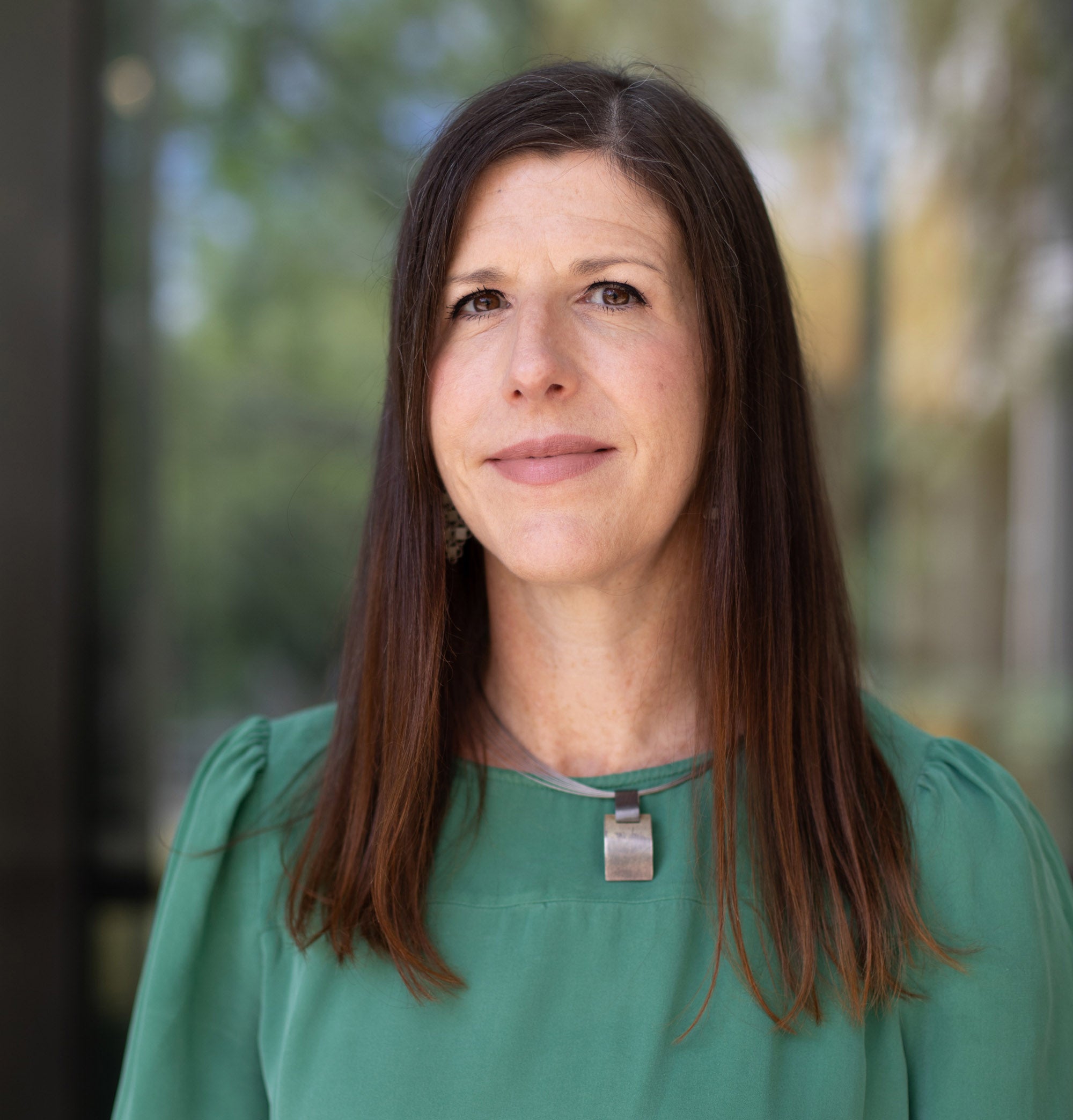
“Having these experiences when you’re a young adult can be so formative for the rest of your life, and I would use myself as an example of that. I really encourage any college students to take advantage of a study abroad program because it leaves such a profound influence and life-changing impact, both personally and professionally.”
— Stacey Sowards, Professor, Moody College of Communication
As a professor, Sowards shares her passion for learning abroad with students. She started in 2002 by taking students to Indonesia, which then blossomed into trips to Costa Rica, Germany, and Mexico. During her time teaching at The University of Texas at El Paso (2009-2014), she also offered classes to Indonesian graduate students.
At UT Austin, Sowards’ longstanding interest in Indonesia continued unabated in 2024 with yet another program she led in partnership with Gadjah Mada University. Set in Jakarta, Yogyakarta, and major cultural and religious locations on the islands of Java and Bali, the program focused on intercultural communication and environmental matters in this hotspot of biodiversity.
“As a professor, because I really valued the [study abroad] experiences so much as part of my undergraduate and graduate education, I wanted to provide those opportunities for students,” Sowards said. “I was always thinking about how students can get involved with field research or the research work that I was doing. It just became part of my career path.” Read More
College of Liberal Arts
LLILAS Director Fosters Transformation
Internationalization and interdisciplinary collaboration are philosophies that Adela Pineda Franco brings to her roles as director of the Teresa Lozano Long Institute of Latin American Studies (LLILAS) and Lozano Long Endowed Professor in Latin American Literary and Cultural Studies.
Pineda Franco’s career is informed by an affinity for language, culture, and literature. Fueled by a childhood in Puebla, Mexico, that was steeped in a multitude of languages and dialects, her background eventually brought her to UT Austin to seek a master of arts in Latin American studies, then a Ph.D. in comparative literature.
“I was exposed to so many different regional cultures and languages all the time,” Pineda Franco said. “That’s why I didn’t want to study strictly Mexican or strictly Latin American literature only. I wanted to compare languages and cultures.”
After obtaining her doctorate at UT Austin, Pineda Franco headed to Boston University, where she founded and directed the Center of Latin American Studies and spent 20 years teaching Latin American literature and film.
In 2021, attracted by UT Austin’s rejuvenated commitment to internationalization and global impact — not to mention proximity to Latin America — Pineda Franco officially returned to direct the institute and teach Latin American literary and cultural studies. The opportunity to lead LLILAS felt especially appealing.
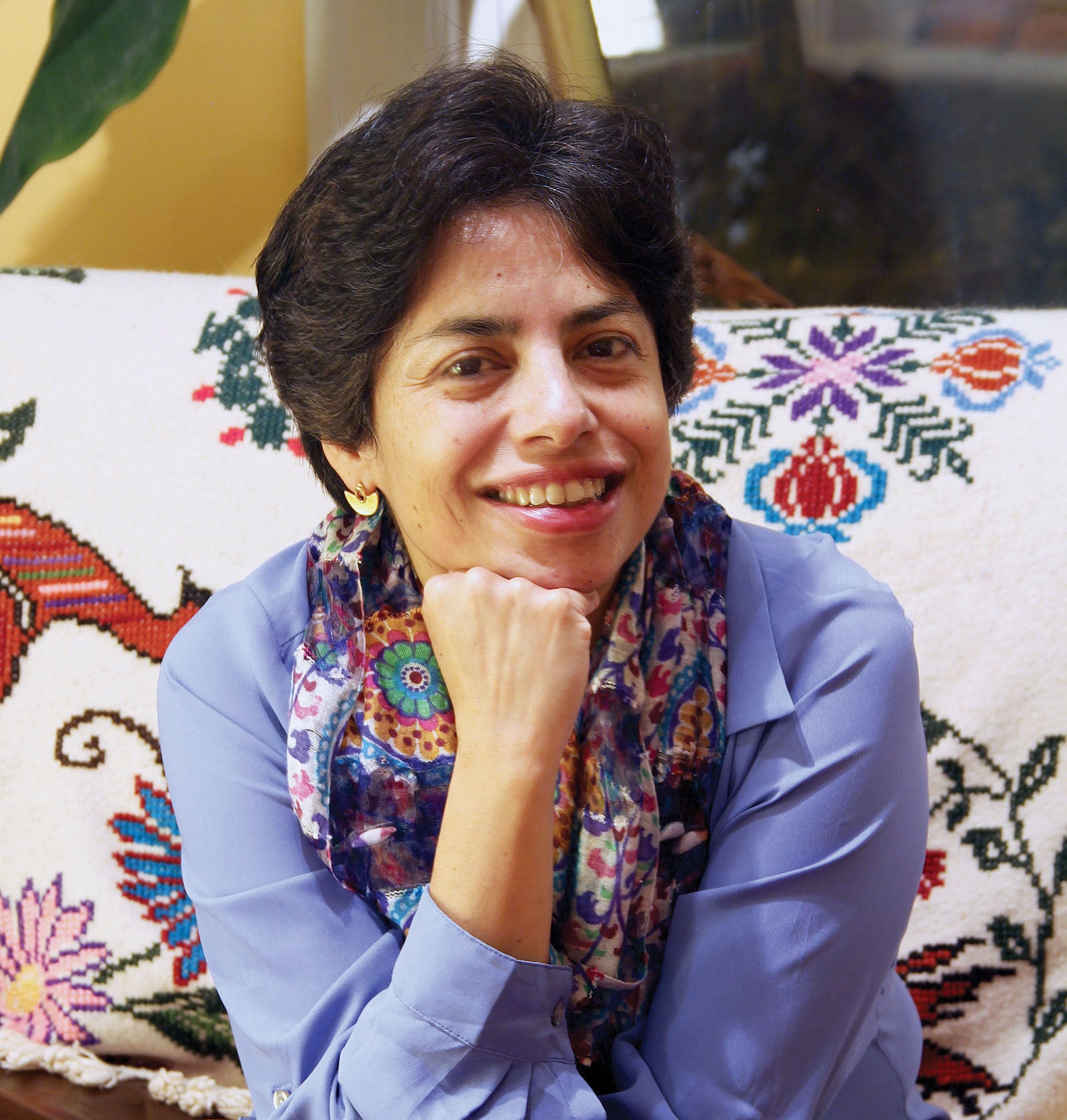
“I was attracted to LLILAS not only because [UT] is my alma mater, but also, when I was reading about LLILAS, I saw how transformative it had been for the last 20 years, particularly because of its partnership with the Benson Collection, which is an amazing library.”
— Adela Pineda Franco, Director, Teresa Lozano Long Institute of Latin American Studies
“I was attracted to LLILAS not only because [UT] is my alma mater, but also, when I was reading about LLILAS, I saw how transformative it had been for the last 20 years, particularly because of its partnership with the Benson Collection, which is an amazing library,” Pineda Franco said.
She found herself and LLILAS uniquely positioned to foster connections across campus and beyond, with a sense of opportunity that emanated partly from the University’s new 10-year strategic plan, Change Starts Here.

Pineda Franco continues to build connections, refining and expanding LLILAS’ offerings to build on its strong reputation bolstered by endowments and grants from prestigious foundations like Tinker and Mellon. Her methods spring from a concept of bringing nations with different cultures and societies together under the same umbrella.
“You can approach the region in very different ways, but what I learned as a director is the importance of growing interdisciplinary and interregional knowledge,” said Pineda Franco. “That’s at the core of the mission of any institution that is international.” Read More
College of Pharmacy
Pharmacy Prize Advances Global Medicine Distribution
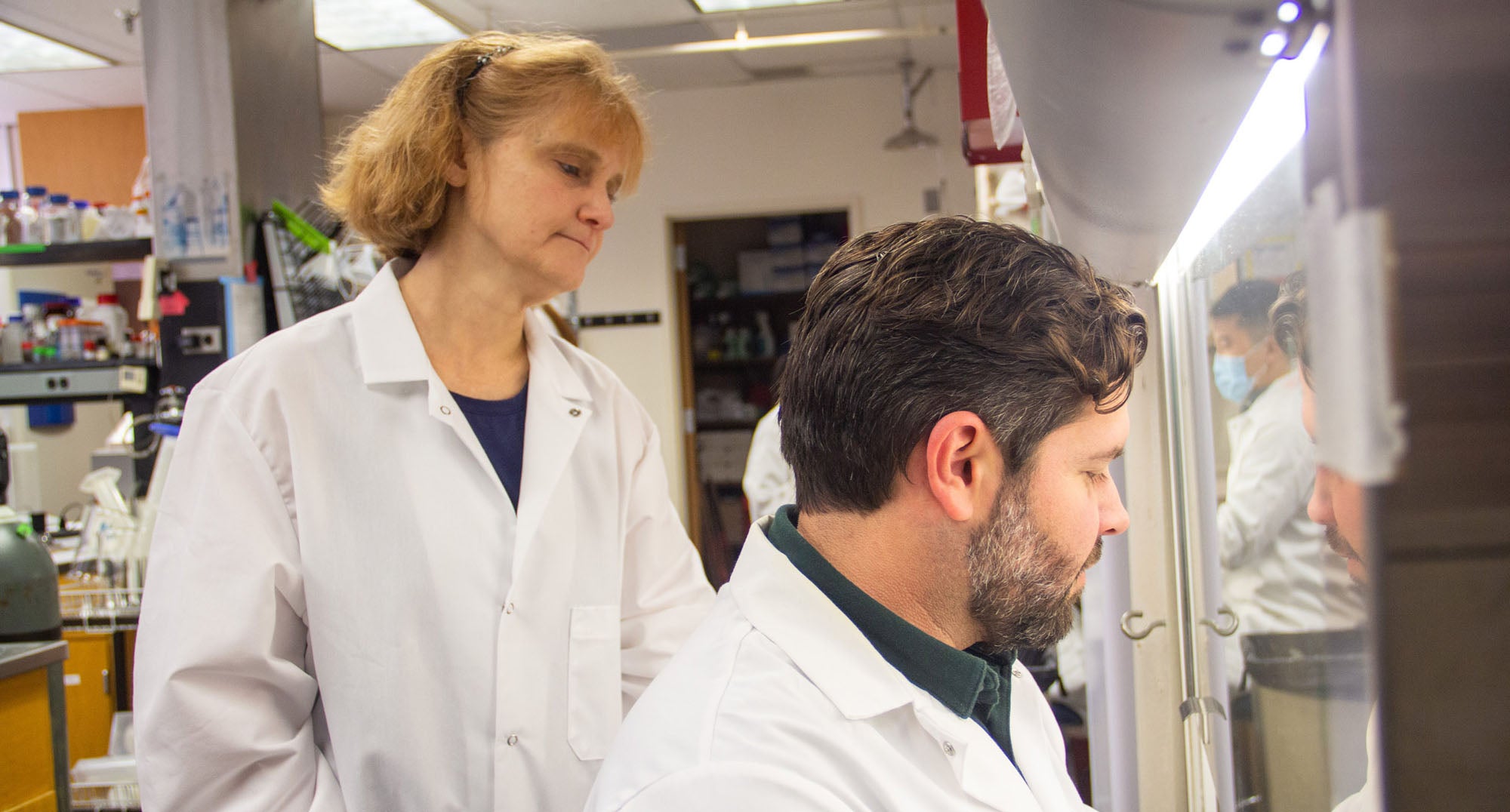
In 2024, Professor Maria A. Croyle in the College of Pharmacy received the prestigious Hill Prize in Engineering, an international award that supports research ideas with significant potential for worldwide impact.
Croyle’s winning proposal outlined a simple, resource-sparing system to preserve and transport vaccines without the need for temperature control, which could facilitate rapid distribution of lifesaving medicines to the developing world.
The prize funding of $500,000 will allow Croyle’s team to advance their innovation from lab to clinic to full-scale production, ultimately releasing the technology to the marketplace and making an impact around the globe. Read More
College of Liberal ArtsLBJ School of Public Affairs
Global DisInformation Lab Leads Pursuit of Truth
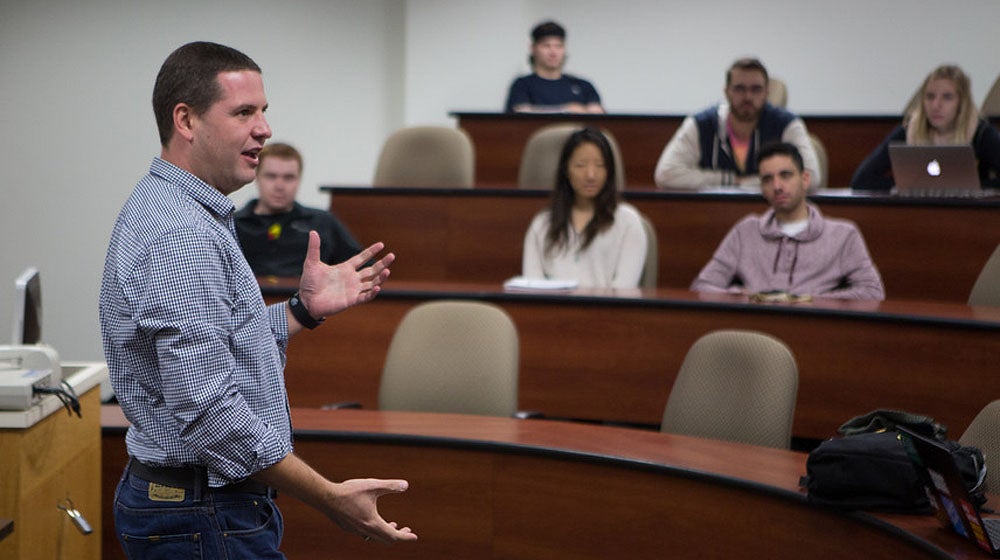
Kiril Avramov, assistant professor in the Department of Slavic and Eurasian Studies, co-founded UT Austin’s Global DisInformation Lab (GDIL), uniting research in the liberal arts and STEM disciplines to study global circulation of disinformation and devise policy recommendations to resist and refute the phenomenon.
Avramov is committed to combating disinformation in non-Western political warfare, which has worsened with the development of artificial intelligence. In his role as GDIL co-director, he undertakes research, mentors students, and assists them in publishing work, also leading team efforts to identify and dispel disinformation and its damaging effects on global discourse. Read More
Courtesy of Jackson School of Geosciences
Jackson School of Geosciences
Geologist Wins Top Polar Exploration Award
Ian Dalziel, a professor at UT’s Department of Earth and Planetary Sciences, was honored with the United Kingdom’s top award for polar exploration in 2023. Presented by Princess Anne, the Princess Royal, at Windsor Castle, the Polar Medal recognizes exemplary contributions to Antarctic geology.
A dual U.S and U.K. citizen, Dalziel has led numerous international research efforts in Antarctica with scientists of the British Antarctic Survey, leading to discoveries that changed the way the continent is studied.
His seminal expedition to explore the “doomsday” Thwaites Glacier set off a subsequent wave of scientific research into Earth’s past supercontinents. He also made a groundbreaking investigation of South Georgia, which revealed that the remote sub-Antarctic island is actually a lost fragment of the southern Andes in South America.
Dalziel also established the first GPS receiver network across West Antarctica, which led to the discovery that the continent is rapidly rising as its ice sheet melts. The system is now part of a global network for observing the polar regions. Read More
“This medal is about more than just Ian’s status as an exceptional scientist. It’s about the spirit of exploration that Ian imprinted on the scientific community and the institute where he has worked for over 35 years.”
— Demian Saffer, Director, UT Institute for Geophysics
Social Work Initiates Master's Program in Chile
Since 2020, the School of Social Work has collaborated with the Pontificia Universidad Católica de Chile (PUCC) to establish and implement the Pontificia Master’s Clinical Social Work Program, a degree-granting program in South America for students of social work. The collaboration is becoming a model for the establishment of similar programs throughout South and Latin America.
This strategic arrangement allows the School of Social Work to embrace UT Austin’s global mission and enhance academic learning experiences for faculty and students. Housed at PUCC, the program hosts UT faculty members in Chile to teach and consult. Longhorn professors and scholars rotate on a semester-by-semester basis to engage in weeklong stints of co-instruction with Pontificia faculty for an applied clinical course featuring the master’s degree curriculum.

Pontificia faculty carry primary responsibility for teaching the selected courses but also receive support from Social Work faculty who specialize in clinical rotations in areas of practice that include parenting, grief and loss, risk behaviors, and diverse youth, among others. The expertise of UT Austin faculty in specific areas of clinical intervention and publication has proven to complement the skills and familiarity of Chilean faculty with local and regional social issues.
Much of the initiative has been executed by Rubén Parra-Cardona, then-associate dean for global engagement at the School of Social Work. His research focuses on helping international organizations and governments select, design, evaluate, implement, monitor, and scale up parenting intervention programs to prevent maltreatment of children and enhance parent-child relationships.
Parra-Cardona’s award-winning work also includes serving as a co-principal investigator to disseminate a culturally adapted parenting program in Chile, as well as serving as expert co-author on a parenting intervention handbook to be published by the World Health Organization.
“We will continue to serve the profession of social work with excellence and bring forth evidence-based research to empower parental relationships, strengthen families, and create further human flourishing within family dynamics.”
— Rubén Parra-Cardona, Associate Dean for Global Engagement, School of Social Work
Scholars from PUCC travel reciprocally to Austin under the partnership, conducting plenary presentations with UT faculty and students as well as individual consultations. Their perspectives have proven invaluable to expanding the School of Social Work vision and engagement with global practice in the field.
The PUCC master’s program received accreditation for three years (2023-2026) by the Chilean National Commission on Accreditation, which cited collaboration with UT Austin as a salient strength of the program during the process. Read More
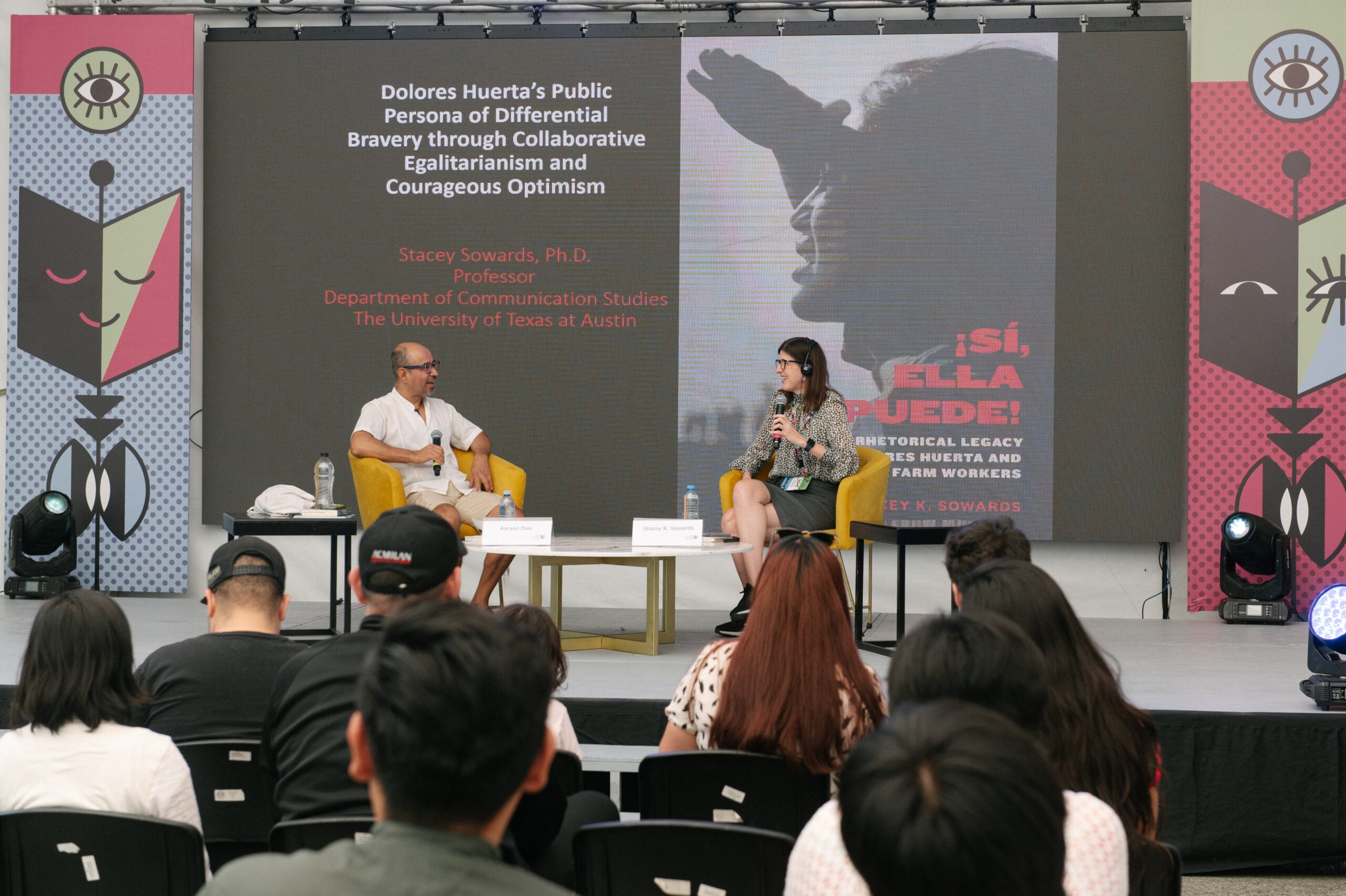
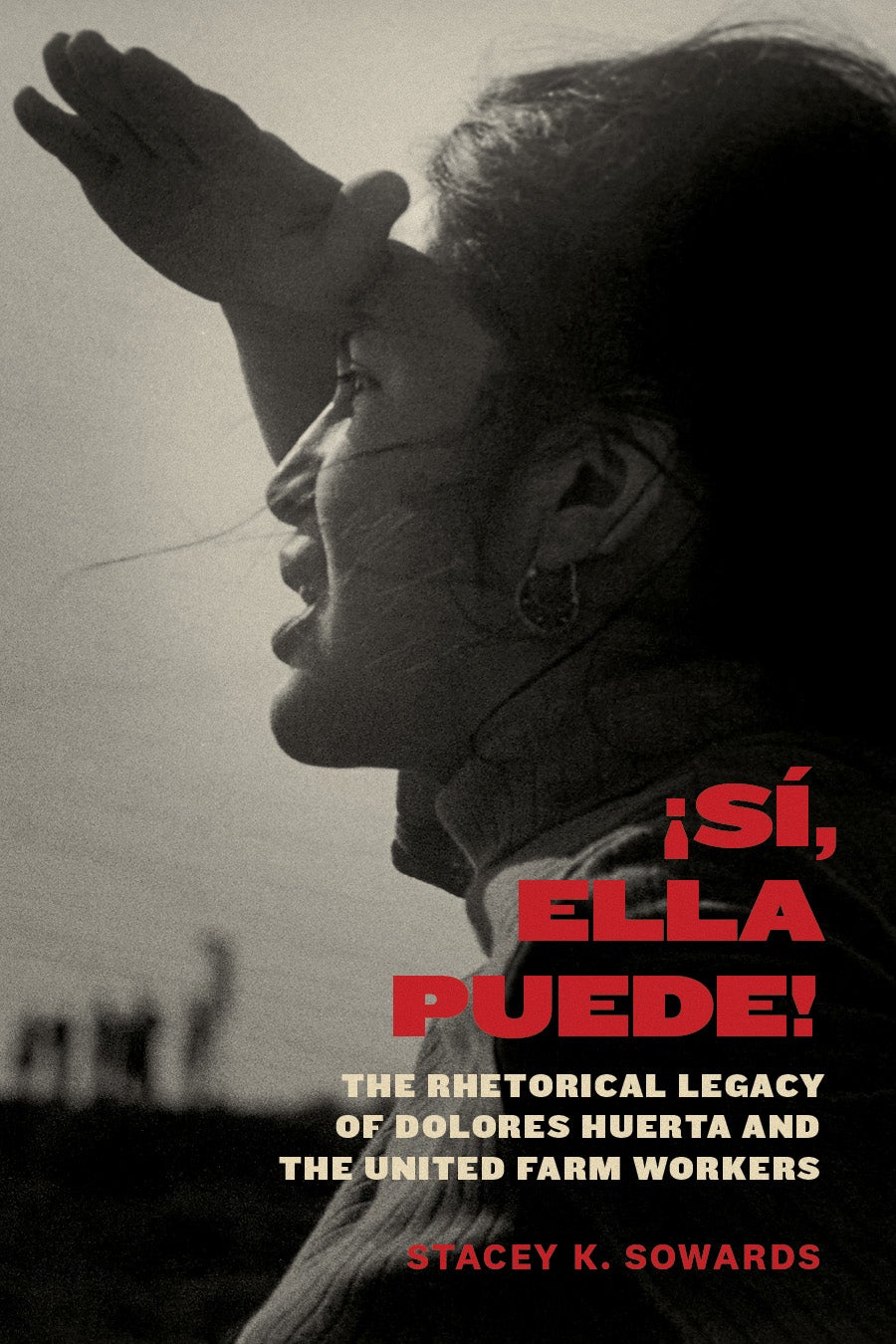

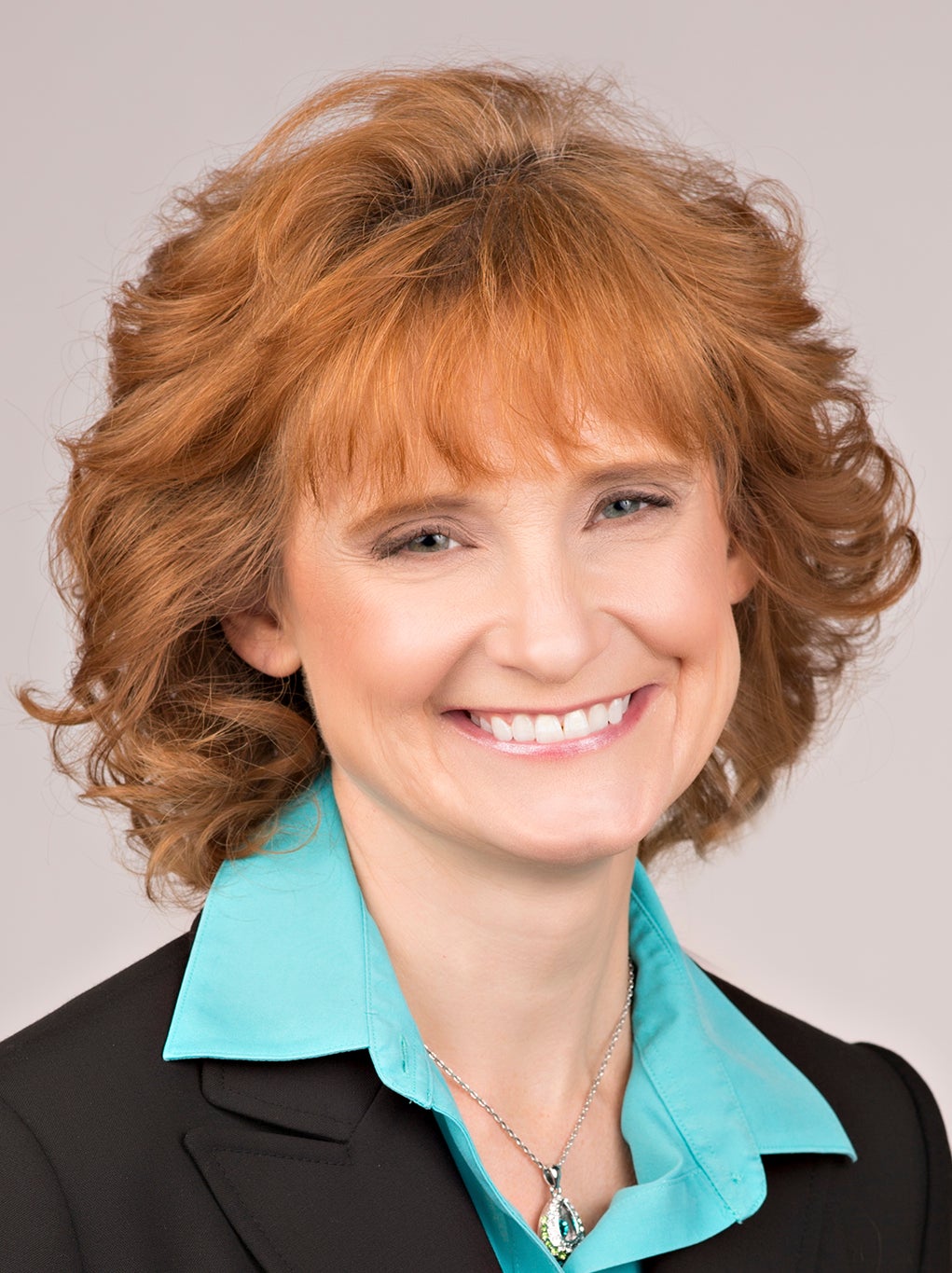
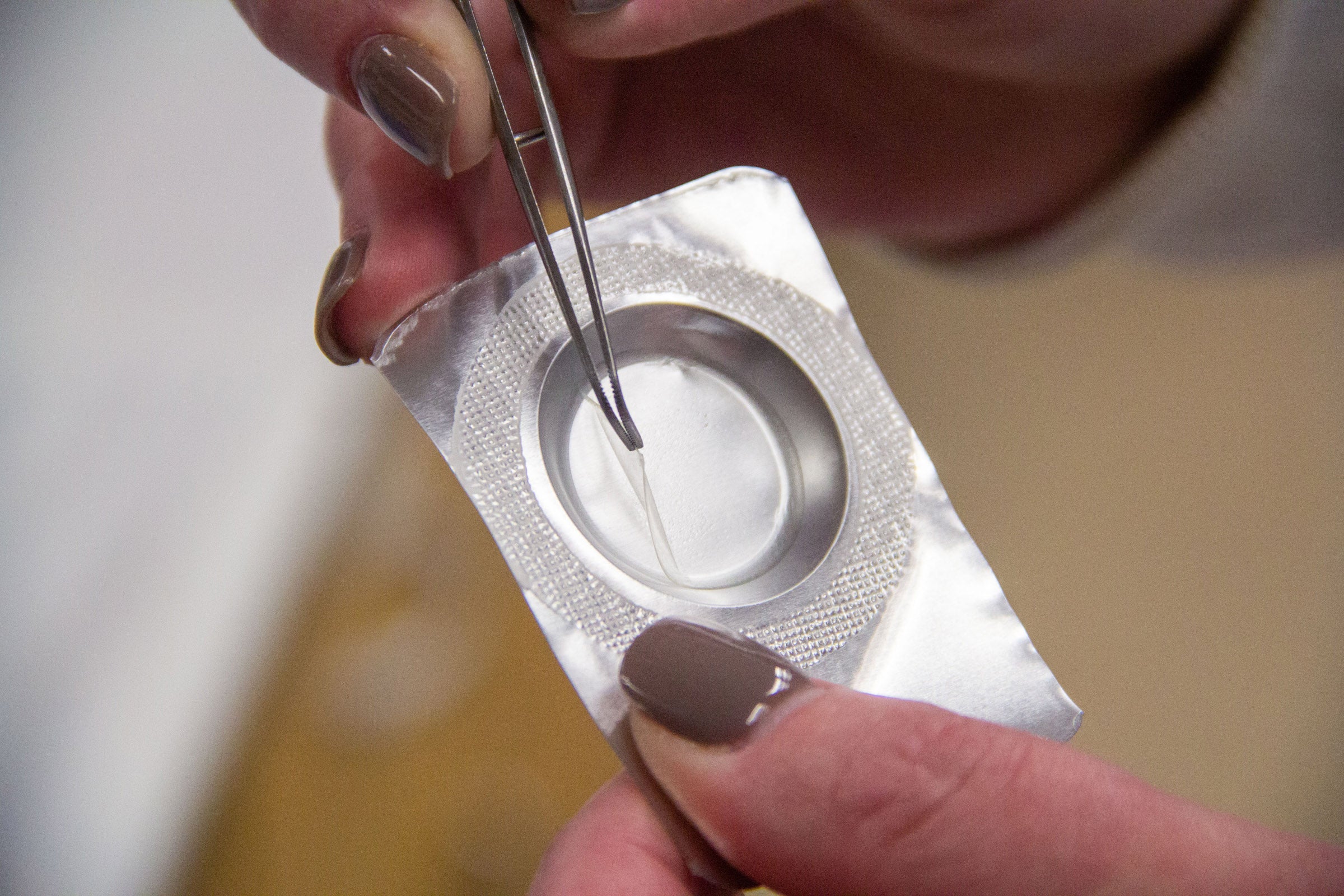
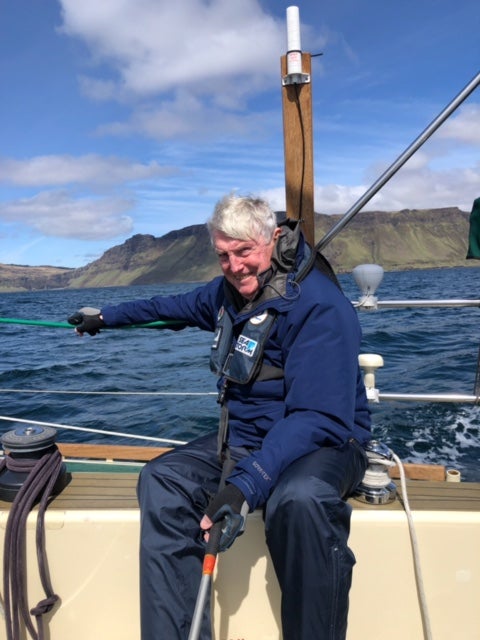
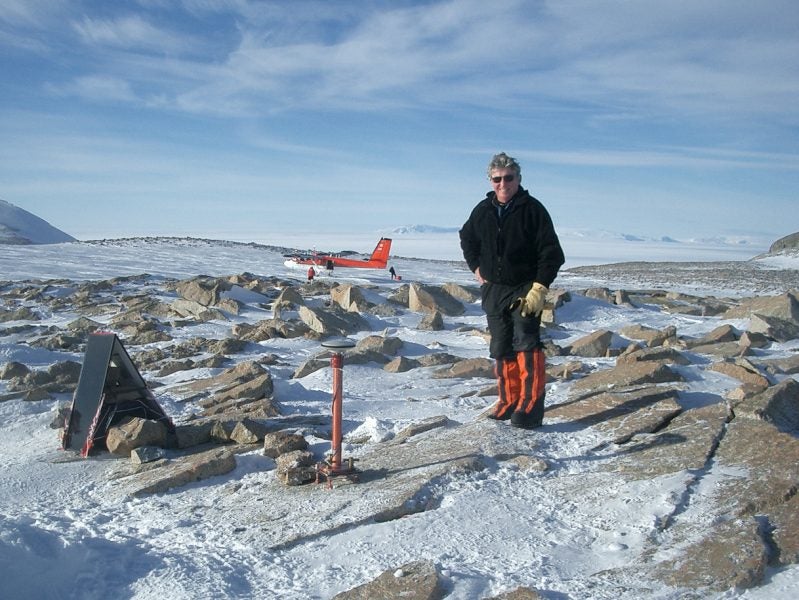
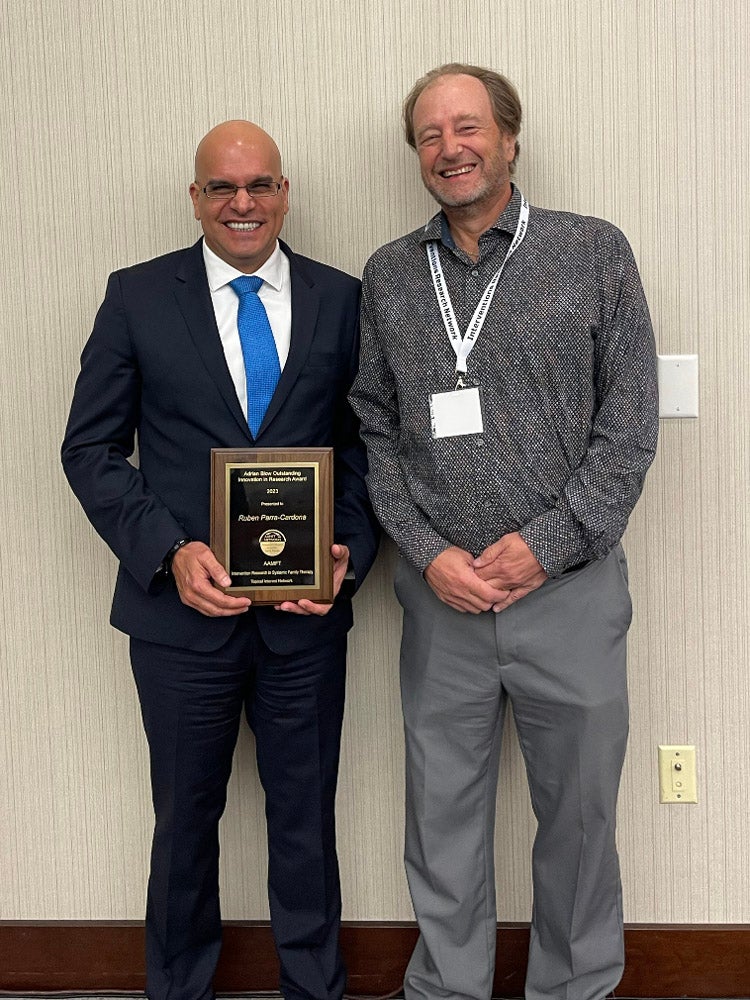
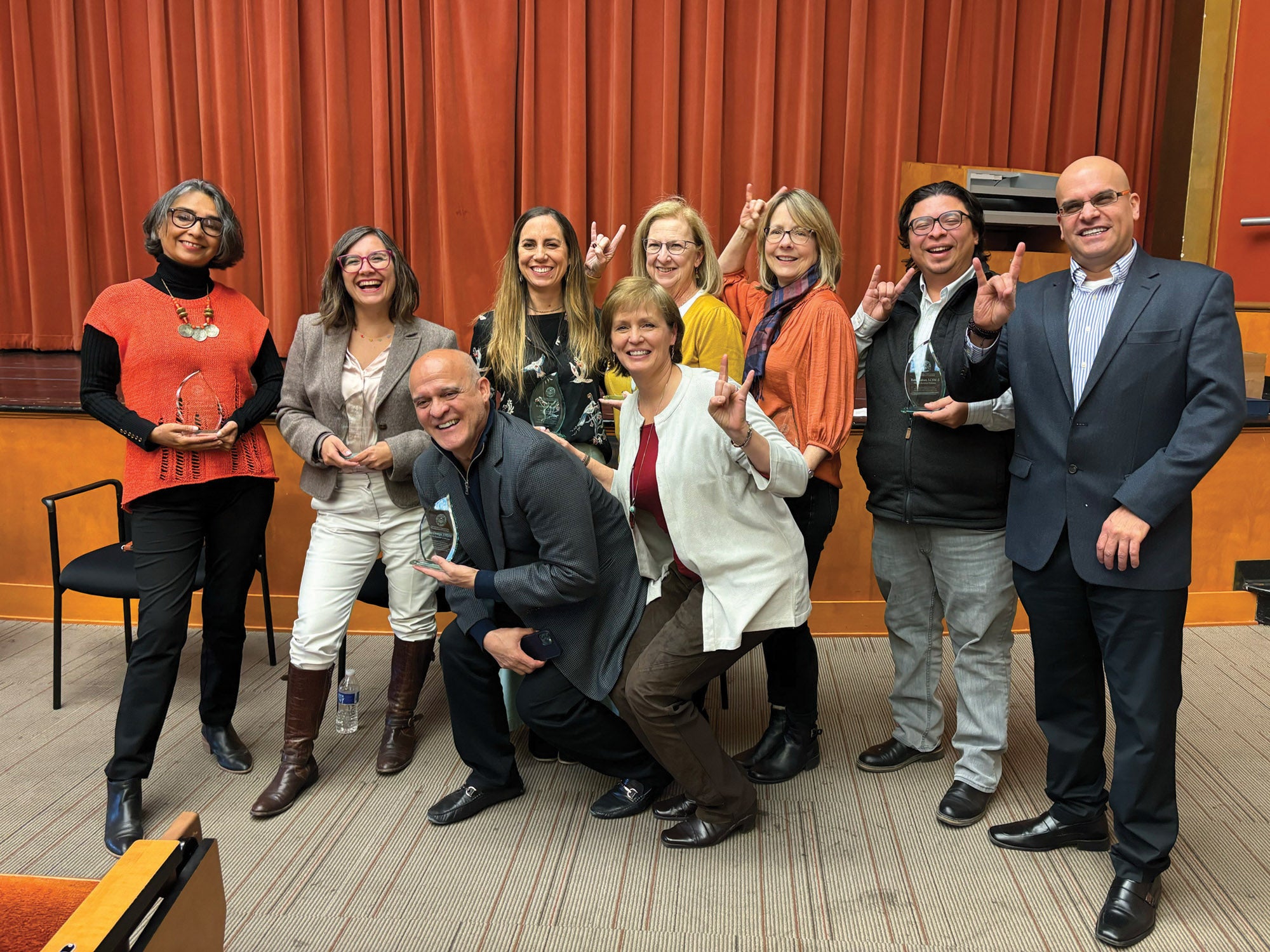
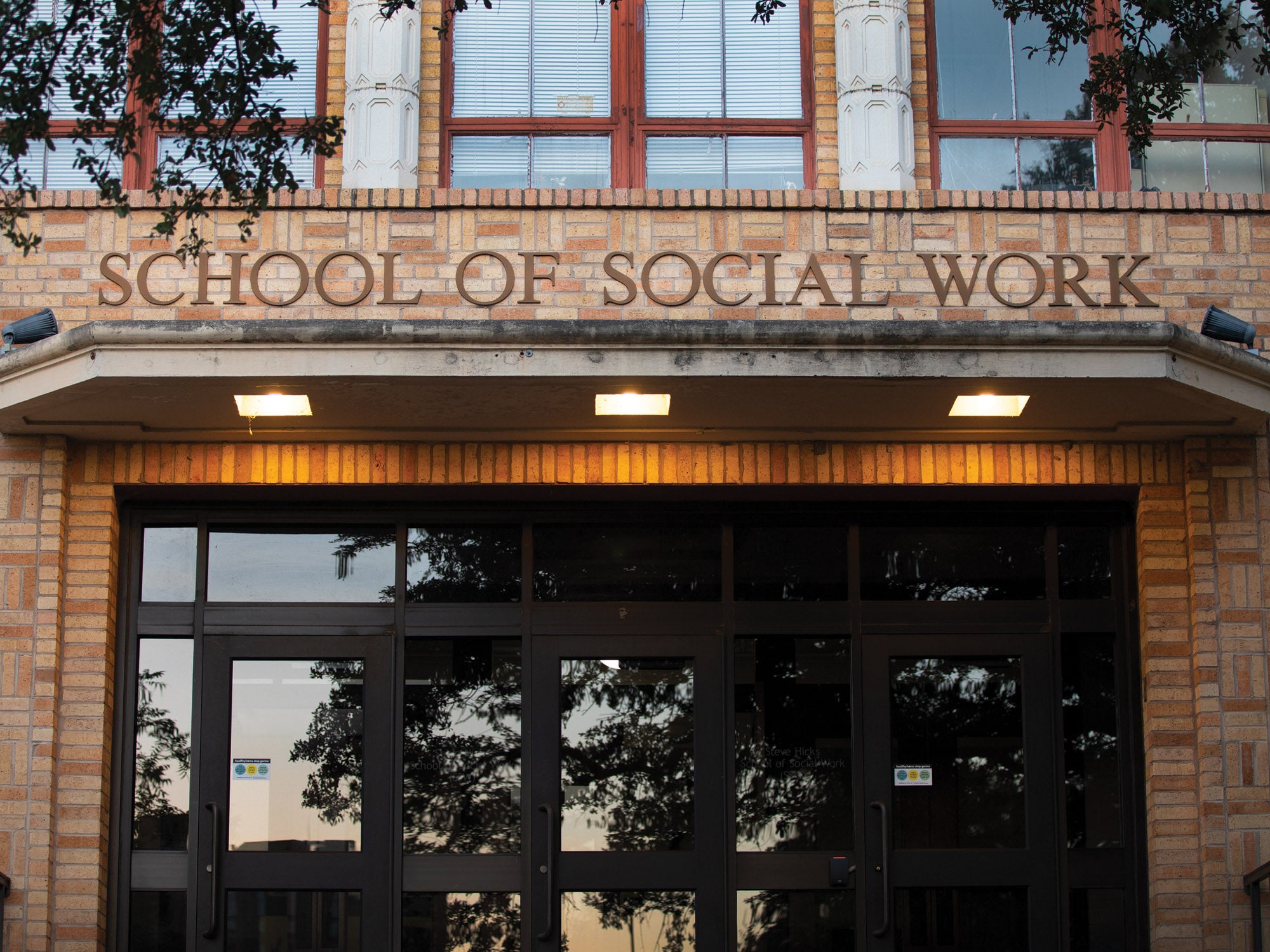
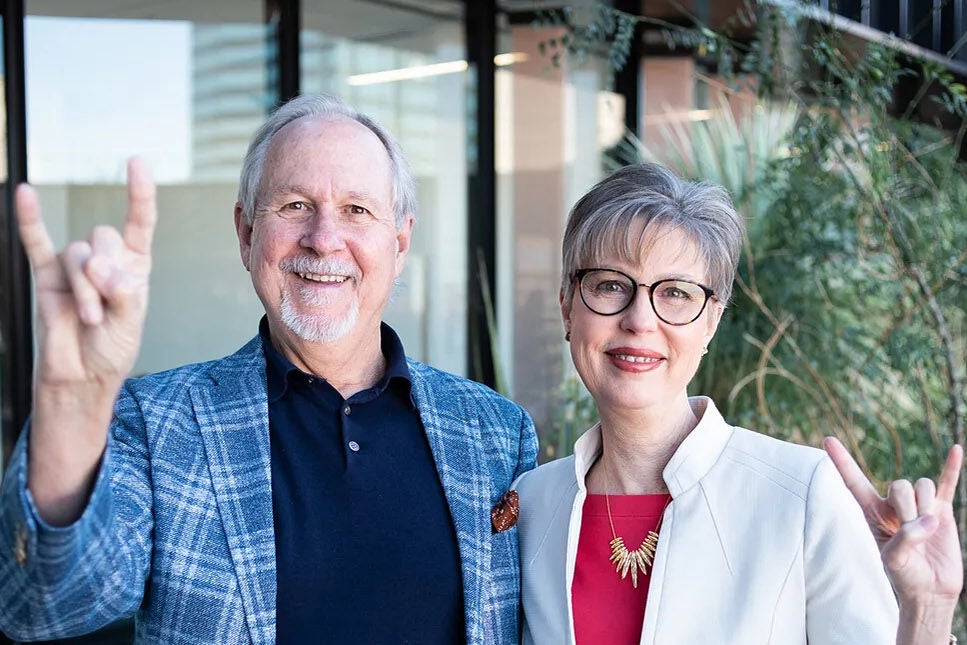
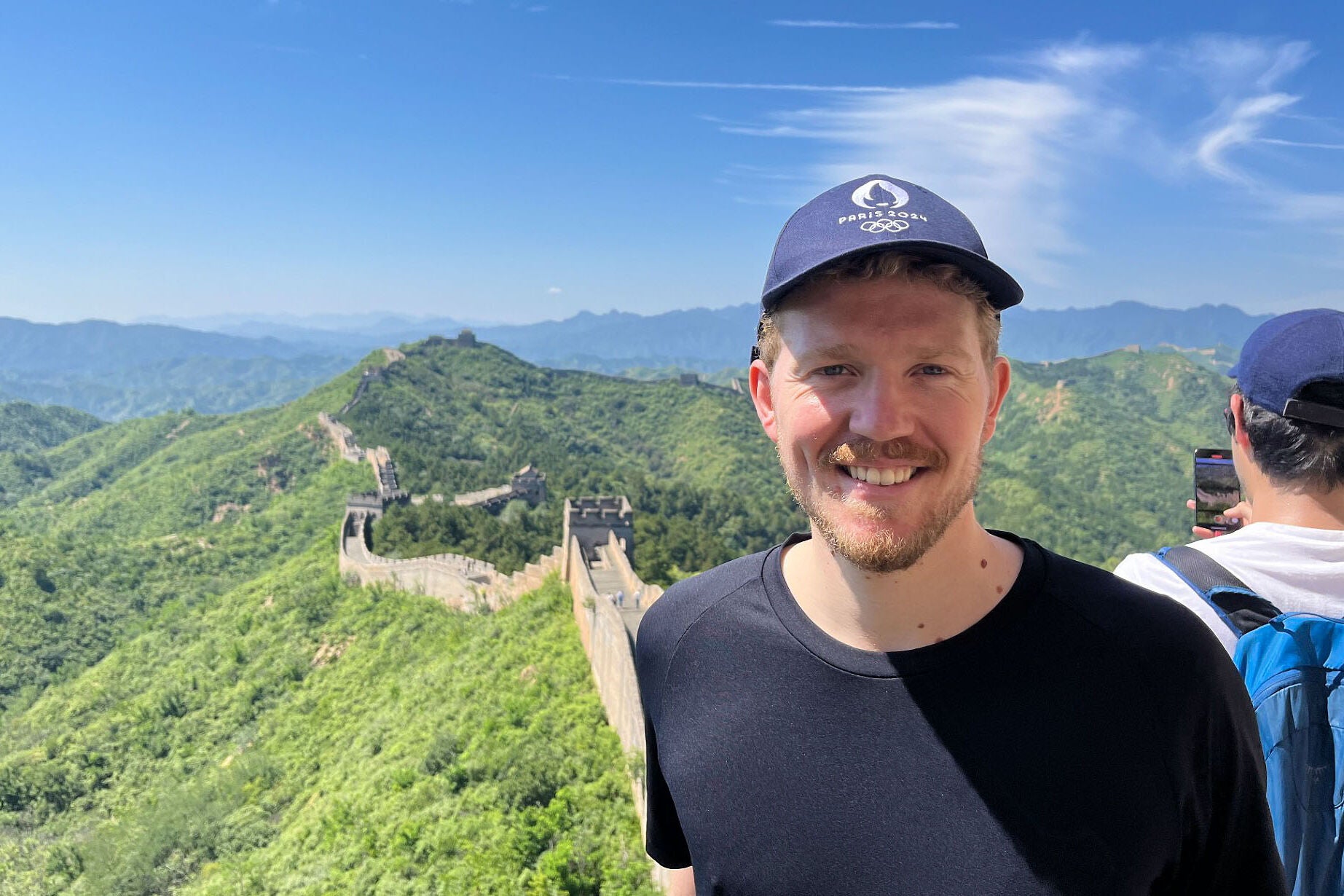
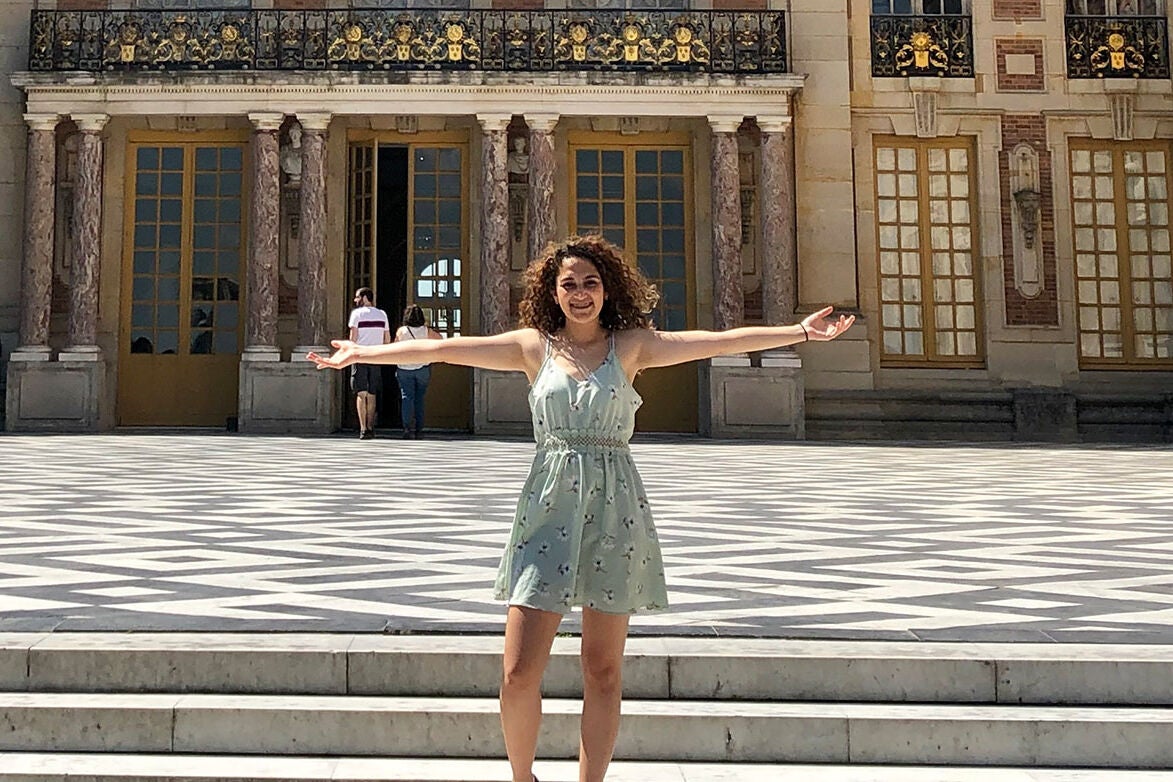
School of Social Work